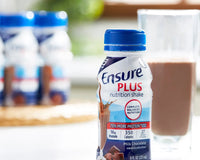The first six months of a child's life are crucial for their growth and development, and nutrition plays a significant role in this process. Infants require a specific diet that provides them with the necessary nutrients to support their physical and cognitive development. Proper infant nutrition can help prevent health complications, improve cognitive development, and reduce the risk of chronic diseases later in life. In this article, we'll discuss the importance of infant nutrition in the first six months of life and provide recommendations for parents to ensure their child receives optimal nutrition.
Exclusive Breastfeeding
Breast milk is perhaps the best source of nutrition for babies in the first six months of life. It contains all the essential nutrients needed for healthy growth and development, including protein, fat, carbohydrates, vitamins, and minerals. Breast milk also contains antibodies that help protect infants from infections and diseases.
The World Health Organization (WHO) recommends exclusive breastfeeding for the first six months of life, meaning infants should receive only breast milk and no other liquids or solids. Breastfeeding should continue alongside other foods until at least two years of age.
Formula Feeding
In cases where mothers are unable to breastfeed or choose not to, formula feeding is an alternative. Infant formula is designed to provide all the necessary nutrients for healthy growth and development, and there are many different types available. It is important to choose a formula that meets your infant's specific needs, as some formulas are designed for infants with specific health conditions.
It's crucial to follow the instructions on the formula packaging carefully and to prepare it correctly. An improperly prepared formula can lead to health complications, including infections and malnutrition.
Introducing Solid Foods
Around six months of age, infants should start to be introduced to solid foods. The timing of introducing solid foods can vary depending on the child's development and readiness. Signs that an infant may be ready for solid foods include the ability to sit up with support, showing interest in food, and being able to coordinate their mouth and tongue movements.
When introducing solid foods, it is important to start with simple foods and to introduce new foods slowly to help identify any potential allergic reactions. A variety of foods should be introduced to ensure the infant receives a balance of nutrients. Infants should be encouraged to self-feed, as this can help promote independence and fine motor skills.
Common foods to start with include pureed fruits and vegetables, rice cereal, and pureed meats. It is important to avoid foods that are choking hazards, such as nuts, popcorn, and hard candies.
Feeding Schedule
Infants have small stomachs and require frequent feedings, especially in the first few months of life. Breastfed infants may feed every two to three hours, while formula-fed infants may feed every three to four hours. As infants grow and their stomachs expand, they may require fewer feedings.
It is important to pay attention to your infant's hunger cues, such as rooting, sucking, and crying, to ensure they are receiving enough food. Overfeeding can lead to obesity and other health complications, so it is important to feed infants in moderation.
Final Thoughts
The first six months of a child's life are a magical time full of milestones and firsts. As a parent, you have the power to shape your child's future by providing them with the best possible nutrition. By giving your child breast milk or formula, introducing them to a variety of nutritious foods, and paying attention to their hunger cues, you can help set them up for a lifetime of healthy habits. So, let's embrace this exciting chapter in our child's life and give them the gift of optimal nutrition - it's a decision that will pay dividends for years to come!
Get quality baby supplies for your child from Cart Health. Our mission is to make it easy to find the medical supplies you're looking for with ease at competitive prices. Whether you need medical supplies for self-care, as a caregiver caring for someone else, or to provide essential health services to patients at your home healthcare facility, we've got you covered. Shop now!









